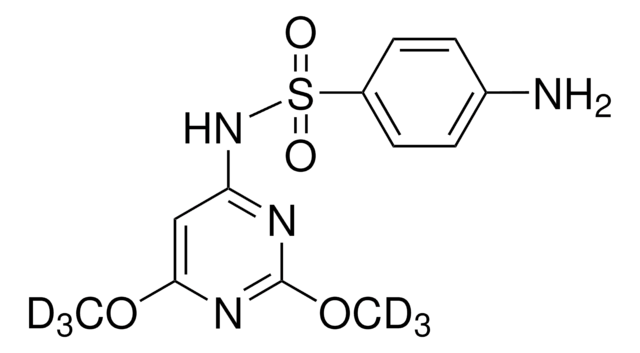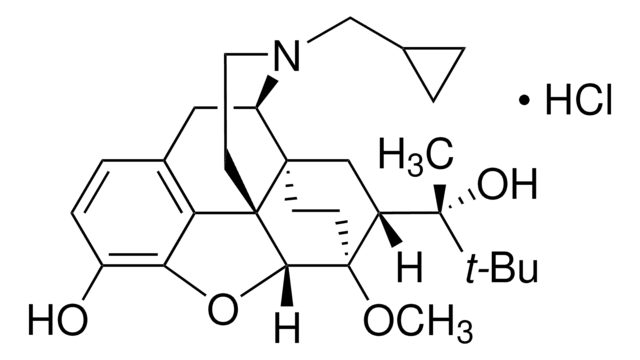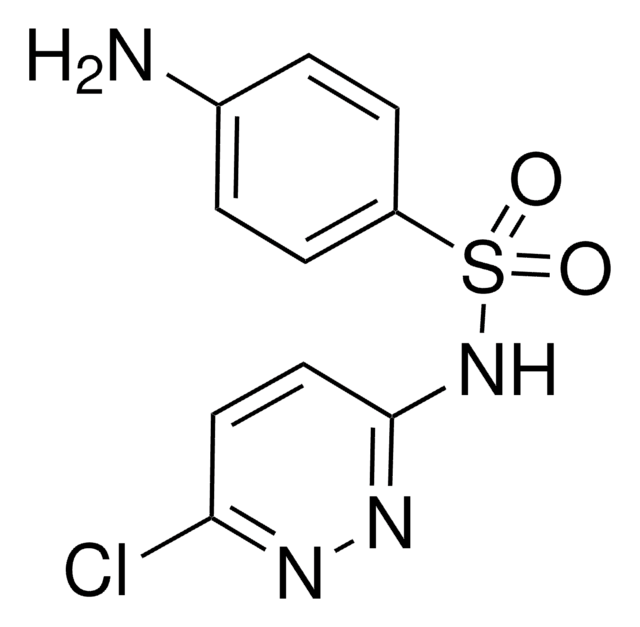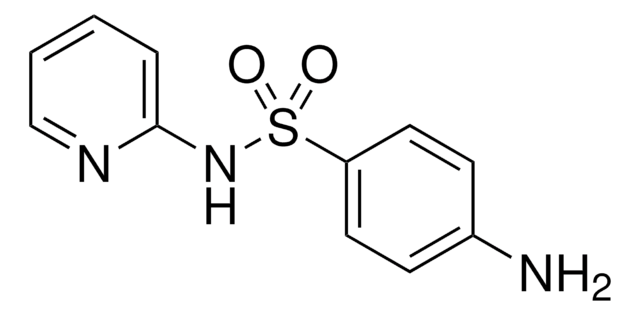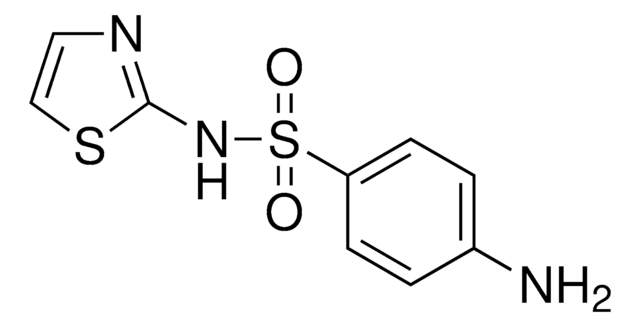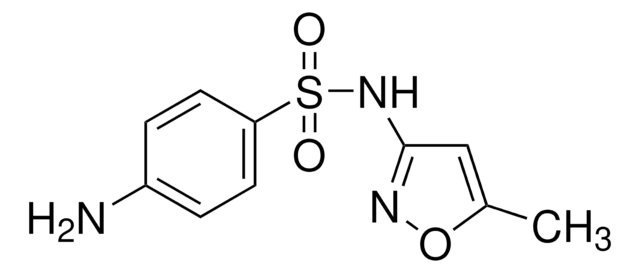S7007
Sulfadimethoxine
98.0-102.0%
Synonym(s):
4-Amino-N-(2,6-dimethoxy-4-pyrimidinyl)benzenesulfonamide
About This Item
Recommended Products
Quality Level
Assay
98.0-102.0%
form
powder
technique(s)
HPLC: suitable
gas chromatography (GC): suitable
antibiotic activity spectrum
Gram-negative bacteria
Gram-positive bacteria
application(s)
forensics and toxicology
pharmaceutical (small molecule)
Mode of action
DNA synthesis | interferes
enzyme | inhibits
storage temp.
2-8°C
SMILES string
COc1cc(NS(=O)(=O)c2ccc(N)cc2)nc(OC)n1
InChI
1S/C12H14N4O4S/c1-19-11-7-10(14-12(15-11)20-2)16-21(17,18)9-5-3-8(13)4-6-9/h3-7H,13H2,1-2H3,(H,14,15,16)
InChI key
ZZORFUFYDOWNEF-UHFFFAOYSA-N
Looking for similar products? Visit Product Comparison Guide
General description
Application
Biochem/physiol Actions
Mode of Action: Inhibits folic acid synthesis in prokaryotes.
Anti-microbial Spectrum: Gram positive, Gram negative, Chlamydia
Mode of Resistance: Alteration of dihydropteroate synthase or alternative pathway for folic acid synthesis.
Signal Word
Warning
Hazard Statements
Precautionary Statements
Hazard Classifications
Acute Tox. 4 Oral
Storage Class Code
11 - Combustible Solids
WGK
WGK 3
Personal Protective Equipment
Choose from one of the most recent versions:
Already Own This Product?
Find documentation for the products that you have recently purchased in the Document Library.
Customers Also Viewed
Our team of scientists has experience in all areas of research including Life Science, Material Science, Chemical Synthesis, Chromatography, Analytical and many others.
Contact Technical Service

